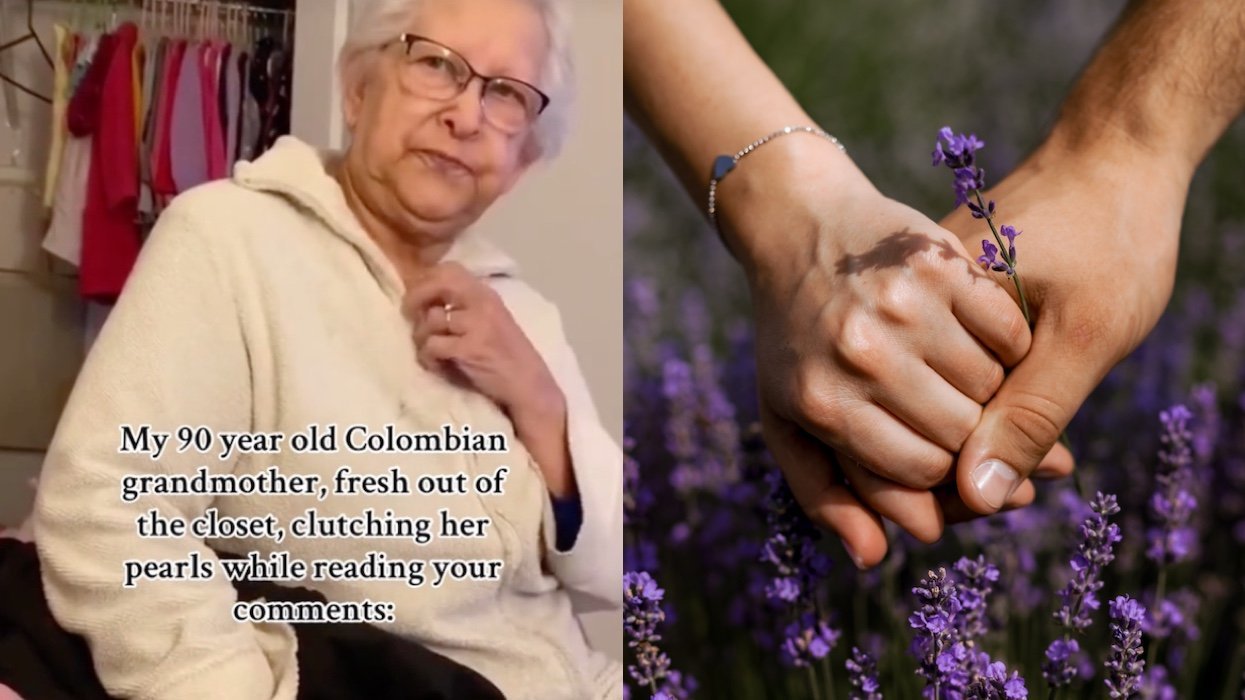A lesbian who
paid child support for three children born to her former
partner is entitled to share custody of the children,
Delaware's highest court has ruled. But in the ruling
issued Tuesday, a three-judge panel of the Delaware
supreme court did not rule on the critical issue of whether
Susan Symes was a "de facto parent" of the triplets born in
1997 to Elizabeth Symes.
Instead, the court based its dismissal on the
"acceptance of benefits" doctrine. Elizabeth Symes had
appealed a family court ruling declaring Susan Symes
to be a de facto parent.
By accepting child support payments from Susan
Symes, awarded on the basis of the family court's de
facto parent determination and joint custody judgment,
Elizabeth Symes gave up her right to challenge the
family court's decision, Justice Randy Holland wrote.
"No rule is better settled than that a litigant
who accepts the benefits or any substantial part of
the benefits of a judgment or decree is thereby
stopped from reviewing and escaping its burdens," Holland
wrote, citing a federal appeals court ruling from 1894.
"[She] cannot avail [herself] of its advantages, and
then question its disadvantages in a higher court."
Attorneys representing the two women, who began
their relationship in 1994 and separated in 2003, were
not immediately available for comment Thursday. Drewry
Fennell, executive director of the American Civil
Liberties Union of Delaware, which filed a
friend-of-the-court brief on Susan's behalf, said the
ruling left open the larger issue of gay and lesbian rights.
"This particular case was dismissed for reasons
that had nothing to do with the substantive matters
being appealed," Fennell said. "I don't think it was a
win or loss for either side."
In a brief filed with the supreme court in
November, Elizabeth Symes, whom the children called
"Mommy," argued that the family court judge, ruling in
a case of first impression in Delaware, went beyond
legislative and statutory limits in granting custody to
Susan Symes--"Mommy Sue," as the children call
her--who gave birth to a fourth child in 2001
using sperm from the same anonymous donor used by
Elizabeth Symes.
Under Delaware
law, a nonbiological third party usually does not have
standing to petition for custody of a child unless there are
exceptional circumstances involving dependency or
neglect. Exceptions also are made for a stepparent
seeking custody after the death or disability of a
child's custodial parent.
Courts in Delaware and other states also have
ruled that adults who are not biological or adoptive
parents but who have developed close physical and
psychological bonds with children in a family context can be
considered "de facto" parents. Elizabeth Symes's attorney,
Lois Dawson, suggested that the family court had
carved out a special exception in the law for custody
issues involving gay couples.
Susan Symes's lawyers argued that the two women
had agreed that each would become pregnant through
artificial insemination, that they had jointly
selected the names of the triplets, and that they agreed to
raise the children together and share parenting
responsibilities. (AP)


















































































